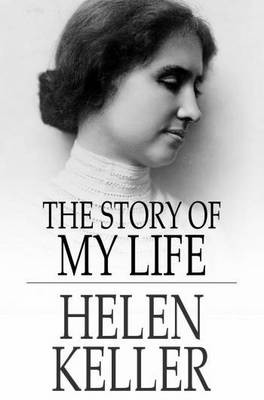
Chapter 3
第3章
Meanwhile the desire to express myself grew. The few signs I used became less and less adequate, and my failures to make myself understood were invariably followed by outbursts of passion. I felt as if invisible hands were holding me, and I made frantic efforts to free myself. I struggled--not that struggling helped matters, but the spirit of resistance was strong within me; I generally broke down in tears and physical exhaustion. If my mother happened to be near I crept into her arms, too miserable even to remember the cause of the tempest. After awhile the need of some means of communication became so urgent that these outbursts occurred daily, sometimes hourly.
在成长的过程中,我越来越渴望表达自己的意愿,但是我使用的几个简单的手势已经远远不够用了;而且,当我无法表明自己的意图时,我就会气急败坏。我感到似乎有一双看不见的手正在抓着我,而我则拼命地想挣脱束缚。我努力抗争——当然并不是希求解决问题,而是想为我内心深处强烈的反抗精神寻找出路。我通常会哭闹不止,直至筋疲力尽。如果母亲碰巧在身边,我会悄悄地钻进她的怀里。我伤心至极,乃至于忘记了愤怒的原因。后来,这种情绪的爆发在每天,或者每小时都会发生,因此,对于交流的需求于我是如此地迫切。
My parents were deeply grieved and perplexed. We lived a long way from any school for the blind or the deaf, and it seemed unlikely that any one would come to such an out-of-the-way place as Tuscumbia to teach a child who was both deaf and blind. Indeed, my friends and relatives sometimes doubted whether I could be taught. My mother's only ray of hope came from Dickens's "American Notes." She had read his account of Laura Bridgman, and remembered vaguely that she was deaf and blind, yet had been educated. But she also remembered with a hopeless pang that Dr. Howe, who had discovered the way to teach the deaf and blind, had been dead many years. His methods had probably died with him; and if they had not, how was a little girl in a far-off town in Alabama to receive the benefit of them?
我的父母陷入了深深的痛苦和困惑之中。当时,我们家离任何一所盲人或聋哑学校都很远,而且,似乎也不会有任何人能跑到像图斯康比亚这种偏僻的地方,就为了教一个又聋又瞎的小孩子。事实上,我的朋友和亲属们一度怀疑我真的能否接受教育。我母亲唯一的希望来自狄更斯的《美国札记》,她曾读过他写的劳拉·布里吉曼的故事,而且她隐约记得那个女孩子也是又聋又瞎,然而却接受了正规教育。不过她也感到希望渺茫,因为豪博士,也就是探索传授盲聋人知识的先驱,已经去世很多年了。而豪博士的教育方法也许会随着他的去世而消亡,果真如此,那么一个住在亚拉巴马偏远小镇的小姑娘又如何从中受益呢?
When I was about six years old, my father heard of an eminent oculist in Baltimore, who had been successful in many cases that had seemed hopeless. My parents at once determined to take me to Baltimore to see if anything could be done for my eyes.
我六岁大的时候,我的父亲听说在巴尔的摩有一个著名的眼科医生,他曾成功地医治过许多看似无望的病人。于是,我的父母决定带我去巴尔的摩,看看是不是能治好我的眼睛。
The journey, which I remember well, was very pleasant. I made friends with many people on the train. One lady gave me a box of shells. My father made holes in these so that I could string them, and for a long time they kept me happy and contented. The conductor, too, was kind. Often when he went his rounds I clung to his coat tails while he collected and punched the tickets. His punch, with which he let me play, was a delightful toy. Curled up in a corner of the seat I amused myself for hours making funny little holes in bits of cardboard.
那是一次愉快的旅行,我依然有着十分清晰的记忆。在火车上,我同许多人成了朋友。有位女士送给我一盒贝壳。我父亲在上面钻出孔洞,这样我就可以把贝壳串在一起,很长时间我都沉醉其中,乐此不疲。列车长也是个友善的人,当他在车厢里四处走动,为乘客检票打孔的时候,我常会靠在他的衣摆上。他还让我玩他的打孔器,那实在是一种很有趣的玩具。我蜷缩在座位的角落里自得其乐,一连好几个小时在一片片纸板上打洞玩。











